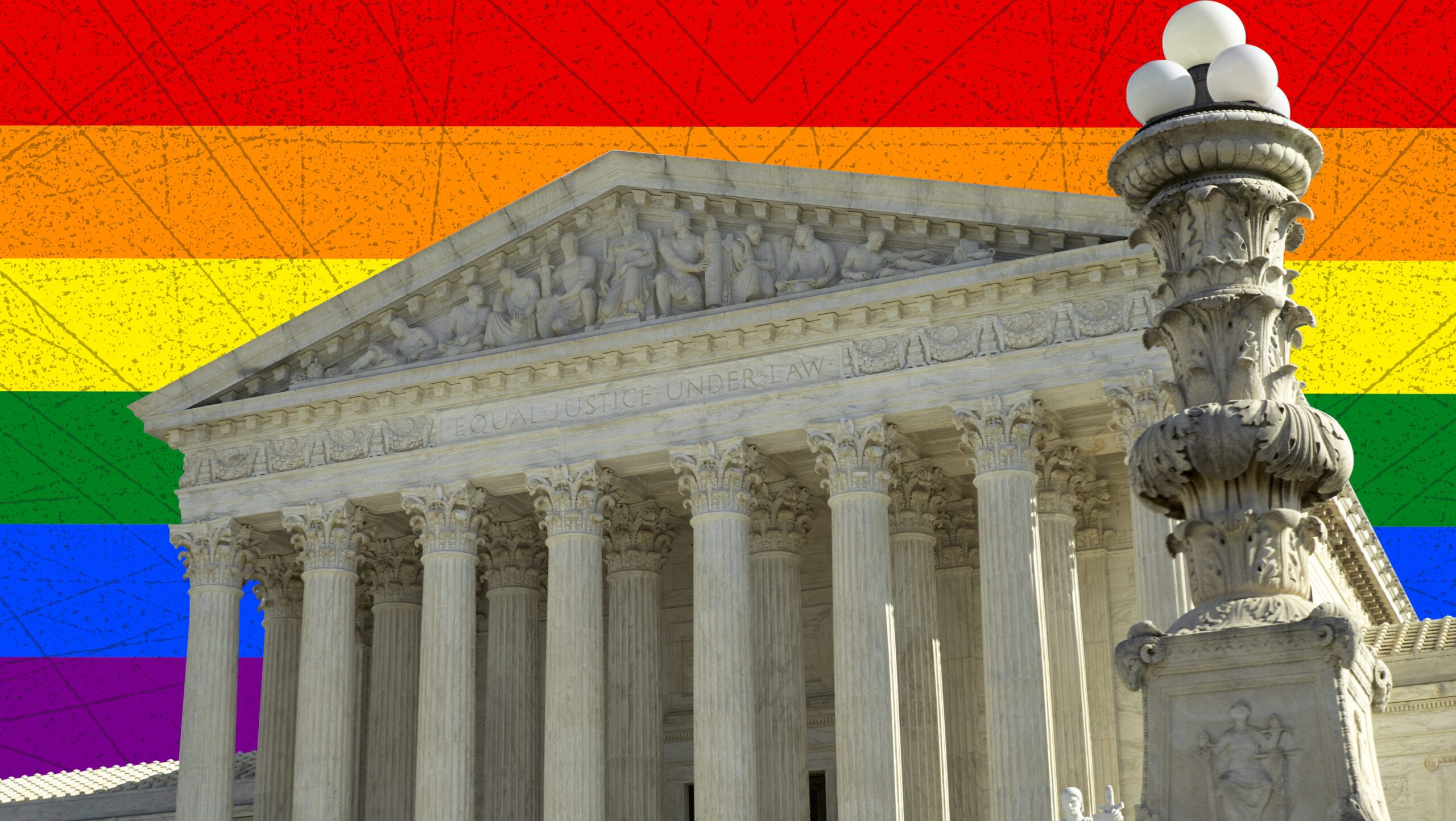This fall, the Supreme Court of the United States (SCOTUS) will hear a case involving the city of Philadelphia and its right to exclude a Catholic adoption agency from its foster care system on the grounds that denying LGBTQ people from adopting goes against the city’s anti-discrimination policies. The organization, Catholic Social Services, is suing on the grounds of religious freedom, claiming that it has a right not to place foster children with LGBTQ people because of its religious beliefs and values. After several appeals, the case has made its way up to the Supreme Court, which is now addressing legal questions the court has deemed “unavoidable” and “of great consequence.”
For LGBTQ Americans, we expect that SCOTUS will protect our rights. After all, queer Americans have looked to the courts as an oasis of hope throughout our decades-long fight for LGBTQ equality. SCOTUS, after all, played a key role in making that equality law: In 2003, for instance, Lawrence v. Texas was among the first SCOTUS cases to help legally shape LGBTQ rights in the U.S. when it ruled to eliminate the country’s sodomy laws. And a decade later, United States v. Windsor became the much-needed precursor to marriage equality, ruling that the Defense of Marriage Act infringed on the rights of queer Americans.
These cases were, of course, before Donald Trump appointed two right-wing justices to the SCOTUS—Neil Gorsuch in 2017 and Brett Kavanaugh in 2018. And there could be an additional conservative justice, should another vacancy open before November’s presidential election, according to Senate Majority Leader Mitch McConnell.
Now, queer and trans Americans must wait to see if the highest court in the country sets a precedent to improve our rights—or denigrates them.

United States Senate Majority Leader Mitch McConnell. Credit: Reynolds Stefani/CNP/ABACA
Most concerning in the Philadelphia adoption agency case are the larger implications for organizations receiving government aid. If SCOTUS rules in favour of the Catholic organization, it will set the precedent that other organizations can deny basic care and services on the basis of religious freedom. Any organization could then hypothetically decide that it will not allow anyone who isn’t Catholic, white and straight to, say, move into housing or receive food stamps. This could spell trouble not only for LGBTQ people but religious minorities moving forward.
We need not forget that two years ago, the Masterpiece Cakeshop v. Colorado Civil Rights Commission ruling set the stage for such discrimination when the court narrowly ruled in favour of the baker who refused to bake a cake for a same-sex couple—opening the door for businesses to discriminate against communities they don’t agree with. Now, imagine a scenario where a Muslim couple walks into a bakery to choose a cake for their wedding and the baker says, “I will not serve you because I disagree with your religion.” That couple could sue, but should SCOTUS rule in favour of the Catholic organization in the Philadelphia case, the precedent has already been set—twice—that the baker’s religious freedom trumps the civil rights of the Muslim couple.
Such a case also highlights the changing state of the American justice system. Our government agencies have been gutted. From the State Department, which has seen a mass exodus of career public servants, to the unravelling of our intelligence agencies, Trump’s vendetta against American institutions are leaving marginalized communities in a dangerous place with fewer and fewer allies in power. Meanwhile, Senator McConnell has confirmed more than 200 federal judges in vacant seats across the country; some are as young as 40 and will have lifetime appointments. McConnell and the Republican Party, it seems, are quietly redrawing the judicial map.
And that’s a real threat for LGBTQ Americans and those who live at the intersection of multiple identities. This cannot be understated—it will not take very much to roll back hard-fought LGBTQ rights from the Obama years. Just look at what has already happened: Among Trump’s first actions as president, in his first year in office, were efforts to reverse protections in schools for LGBTQ youth and ban transgender Americans from the military.
It’s why the Democratic nominee in our forthcoming election is of such importance—not just for LGBTQ Americans but all marginalized groups. While each Democratic frontrunner supports gay marriage and LGBTQ equality, what’s most crucial is that the winning candidate understands Trump as an existential threat to our lives and our livelihood. Which Democratic candidate will present us with a plan that will not only help us sustain our rights but expand upon them? Which candidate understands the value and importance of stacking the courts in the same way right-wing zealots do when they grab control? If the Democrats gain power, they will need to seriously consider the courts. We can no longer live under the guise that justice is blind—because, under the Trump administration, it’s not.
In this dire time, we must remember that winning the White House isn’t the only victory that matters. LGBTQ rights in America will not be safe until progressive power is restored in the Senate. There are several Senate races that matter this cycle in which power could flip—Kentucky, Maine, South Carolina, Colorado, Arizona and North Carolina, to name a few. It is imperative that we have our eyes on the ballot, from the presidency down, if we are to restore justice in this country.
We can no longer hope that the courts will be on our side; we have 200 federal judge appointees and two appointees in the SCOTUS brought to us by the Trump administration. Instead, we must put our trust in the vote—that our country might be governed and defined by its commitment to equality. The only bastion of hope we have left now is the ballot box. We’re still many months away from the SCOTUS decision on the Philadelphia foster care case, and the presidential election. In the meantime, we must rethink our approach to queer rights in this country.


 Why you can trust Xtra
Why you can trust Xtra


